20 Tokyo Tourist Destinations You Must Visit
Tokyo, a vibrant city that seamlessly blends tradition with modernity, offers an array of attractions for every traveler. From historic temples and serene parks to bustling shopping districts and innovative museums, each destination unveils a unique aspect of Tokyo's rich culture. Visitors can immerse themselves in the energetic atmosphere of the Shibuya Crossing or find tranquility at the Meiji Shrine.
8/26/202411 min read
Historical Highlights
Tokyo boasts a rich historical backdrop, with sites that capture the essence of Japan's past. Key locations reflect the country's imperial legacy, spiritual traditions, and cultural transformation.


The Imperial Palace
The Imperial Palace serves as the primary residence of Japan's imperial family. Located in Chiyoda, this landmark is surrounded by beautiful gardens and historic fortifications.
Visitors can explore the East Gardens, which are open to the public and feature remnants of the Edo Castle, built in the early 17th century. Notably, the inner grounds and main palace are not publicly accessible. However, guided tours allow limited entry during specific months.
The palace symbolizes Japan’s imperial history while providing a serene escape from the bustling city. Its architecture and meticulously maintained gardens reflect traditional Japanese aesthetics.


Senso-ji Temple
Senso-ji Temple is Tokyo’s oldest temple, situated in the Asakusa district. Completed in 645 AD, it honors Kannon, the goddess of mercy. The temple is a significant cultural and religious site, attracting millions of visitors annually.
The iconic Kaminarimon Gate, adorned with a massive red lantern, greets visitors before they approach the temple grounds. The bustling Nakamise street leading to the temple is lined with shops selling traditional snacks and souvenirs.
Visitors can admire the main hall, which showcases elegant architectural details. Senso-ji hosts various festivals throughout the year, enriching the experience with vibrant cultural displays.


Meiji Shrine
Meiji Shrine, dedicated to Emperor Meiji and Empress Shoken, is located near Harajuku. Established in 1920, the shrine honors the couple who played a pivotal role in Japan's modernization during the Meiji Era.
Set within a tranquil forested area, Meiji Shrine offers a peaceful retreat. The path to the shrine features impressive torii gates that enhance the tranquil atmosphere.
Visitors can participate in traditional Shinto practices, such as making offerings and drawing omikuji (fortunes). The shrine hosts seasonal events, including Shinto weddings and annual festivals, reflecting enduring cultural traditions.
Modern Marvels
Tokyo is home to impressive architectural feats and attractions that showcase cutting-edge design and engineering. These sites blend culture, technology, and entertainment, making them must-visit locations.


Tokyo Skytree
Tokyo Skytree stands as the tallest structure in Japan, reaching a height of 634 meters. Completed in 2012, it serves as a broadcasting tower and observation deck. Visitors can access two observation levels: one at 350 meters and another at 450 meters.
The panoramic views from the top offer breathtaking perspectives of the city and beyond. The unique design of the Skytree draws inspiration from traditional Japanese architecture, specifically the pagoda. Surrounding the base are shopping, restaurants, and an aquarium, providing a comprehensive experience.


Tokyo Tower
Tokyo Tower, completed in 1958, is a symbol of Japan's post-war rebirth and a prominent feature of the skyline. Its Eiffel Tower-inspired design stands at 333 meters. Visitors can explore two levels of observation decks that provide expansive views of the city.
The tower is illuminated at night, creating a stunning visual spectacle. Below the tower, attractions include an aquarium, wax museum, and shops. Tokyo Tower exemplifies a fusion of history and modernity, remaining a popular destination for tourists and locals alike.


Roppongi Hills
Roppongi Hills is a vast urban development that combines shopping, dining, and art. At its center is the Mori Tower, which features an observation deck on the 52nd floor. The views from Roppongi Hills include the Tokyo skyline and nearby landmarks.
This area is also home to the Mori Art Museum, showcasing contemporary art from Japan and around the world. The open spaces and gardens provide a contrast to the bustling city, creating a pleasant environment for visitors. Roppongi Hills highlights Tokyo's commitment to blending culture with urban living.
Cultural Experiences
Tokyo is home to impressive architectural feats and attractions that showcase cutting-edge design and engineering. These sites blend culture, technology, and entertainment, making them must-visit locations.
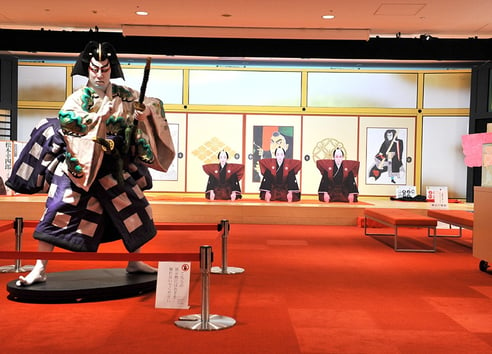

Kabuki-za Theatre
Kabuki-za Theatre, located in Ginza, is the principal venue for Kabuki, a traditional form of Japanese drama known for its elaborate costumes and stylized performances. Visitors can watch both full-length plays and shorter excerpts.
Tickets can be purchased in advance or at the box office. Those unfamiliar with the performances can benefit from English audio guides. The theatre itself is an architectural highlight, blending modern design with traditional elements.


Sumo Wrestling at Ryogoku Kokugikan
Ryogoku Kokugikan is the main arena for sumo wrestling in Tokyo. This iconic venue hosts major tournaments three times a year, attracting both locals and tourists alike.
Attendees can witness the unique rituals, including the ceremonial ring-entering and the intense matches. Tickets vary in price based on seat location, and it's wise to arrive early for the best experience. The area also has sumo stables, allowing for glimpses of training.


Tsukiji Outer Market
The Tsukiji Outer Market is a vibrant culinary destination, offering a wide range of fresh seafood, produce, and street food. Visitors can sample local delicacies such as sushi, grilled seafood, and traditional snacks.
The market features numerous vendors and small restaurants, providing an authentic taste of Tokyo's food culture. Early mornings are the best time to visit, as many stalls offer freshly prepared items. Engaging with local vendors can enhance the experience and provide insights into Japanese culinary traditions.
Iconic Neighborhoods
Tokyo is renowned for its diverse neighborhoods, each offering unique experiences and attractions. From bustling intersections to trendy fashion districts, these areas highlight the vibrant culture of the city.


Shibuya Crossing
Shibuya Crossing is one of the busiest pedestrian intersections in the world. Known for its organized chaos, it sees thousands of people crossing from all directions with each signal change.
Visitors often take photos from nearby cafes and buildings to capture the iconic scene. The surrounding area is filled with shops, restaurants, and entertainment venues.
Shibuya is also home to the famous Hachiko Statue, honoring the loyal dog known for waiting at the station for its owner. This spot serves as a popular meeting point and a symbol of loyalty.


Harajuku
Harajuku is the epicenter of youth culture and fashion in Tokyo. Known for its vibrant street style, the neighborhood attracts trendsetters and fashion enthusiasts.
Takeshita Street is a must-visit, featuring unique shops selling eclectic clothing, accessories, and sweets. The lively, colorful atmosphere invites exploration and discovery.
Nearby, Meiji Shrine offers a serene contrast with its tranquil gardens and traditional architecture. Visitors can experience Shinto rituals and enjoy a moment of reflection amid the bustling shopping scene.


Akihabara
Akihabara is recognized as the hub of otaku culture, specializing in anime, manga, and video games. It's filled with shops catering to fans, offering a vast selection of merchandise.
Maid cafes also offer a unique dining experience, where staff dressed in maid costumes serve food and drinks with playful interactions.
The electric town features arcades and stores selling vintage gaming consoles, attracting enthusiasts of all ages. Visitors can immerse themselves in a world that celebrates Japanese pop culture and technology.
Gardens and Parks
Tokyo hosts a variety of beautiful gardens and parks that provide serene getaways from the city's bustling environment. Each destination offers unique landscapes and experiences, attracting both locals and tourists alike.


Shinjuku Gyoen National Garden
Shinjuku Gyoen National Garden is a large public park featuring traditional Japanese, English, and French landscape designs. It spans over 58 hectares and is renowned for its seasonal cherry blossoms.
Visitors can explore pathways lined with over 1,000 cherry trees during sakura season. The garden also includes a beautiful greenhouse showcasing tropical plants.
Facilities such as tea houses enhance the tranquil atmosphere, allowing visitors to enjoy traditional matcha while surrounded by nature. Admission is relatively low, making it a popular spot for relaxation and leisurely strolls.
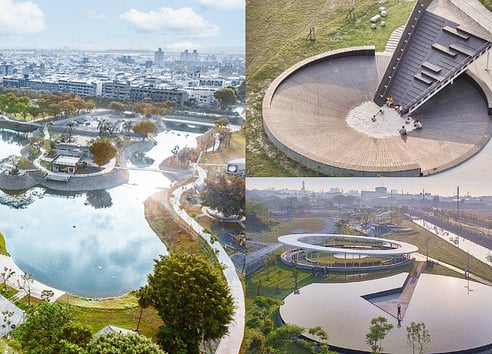

Ueno Park
Ueno Park is one of Tokyo’s most famous parks, situated near Ueno Station. Covering 133 acres, it is not only a natural haven but also home to museums and a zoo.
The park hosts numerous cherry trees, making it a popular picnic spot during hanami season. Cultural attractions include the Tokyo National Museum and the Ueno Zoo, which houses over 400 animal species.
Visitors can also find seasonal festivals and events, enriching their experience throughout the year. Ueno Park offers a vibrant blend of culture and nature, appealing to a wide range of interests.
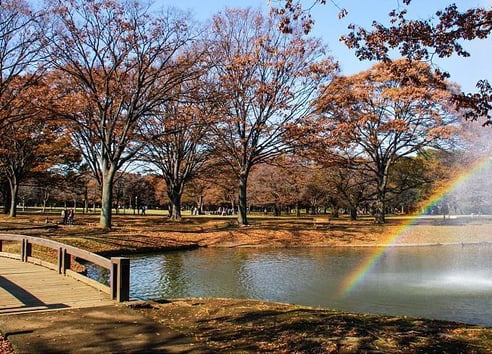

Yoyogi Park
Yoyogi Park is located adjacent to the iconic Yoyogi National Gymnasium. This expansive space offers a casual atmosphere for picnics, jogging, and various outdoor activities.
The park features open grassy areas perfect for gatherings and art performances, especially on weekends. Visitors can enjoy cycling or rollerblading along the pathways surrounded by lush greenery.
Seasonal events, including flower festivals, attract many attendees. The park’s relaxed vibe makes it a great spot for families and friends to unwind amid the city's fast pace.
Art and Museums
Tokyo offers a rich tapestry of art and history through its museums. These institutions present both traditional and contemporary works, reflecting the city's diverse cultural landscape


teamLab
teamLab Tokyo is a must-see destination for art lovers. This innovative digital art museum features a variety of famous exhibitions that showcase the intersection of art, technology, and nature. Visitors can immerse themselves in interactive installations that respond to their movements and gestures, creating a truly unique and immersive experience. One of the most popular exhibitions at teamLab Tokyo is the "Borderless" exhibit, which features stunning light displays and digital projections that transport visitors to a magical and otherworldly realm. Another popular exhibit is the "Planets" exhibit, where visitors can walk through a series of immersive environments that simulate different elements of nature. With its captivating and Instagram-worthy displays, it's no wonder teamLab Tokyo has become a popular destination for locals and tourists alike.
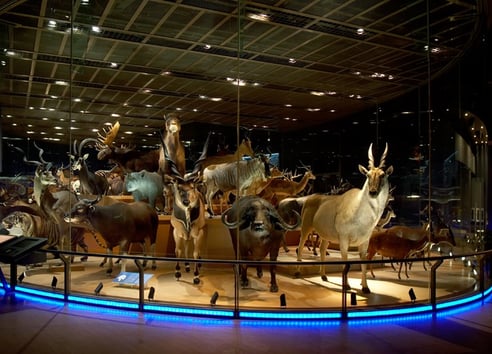

Tokyo National Museum
The Tokyo National Museum is Japan's oldest and largest museum, located in Ueno Park. It focuses on traditional Japanese art, including ceramics, samurai armor, and ancient scrolls. The museum's extensive collection spans thousands of years, offering insights into Japan's cultural heritage.
Special exhibitions often highlight international art and artifacts. Visitors can explore beautifully curated spaces, with detailed information on each piece. This museum also offers guided tours and workshops for a deeper understanding of the exhibits.
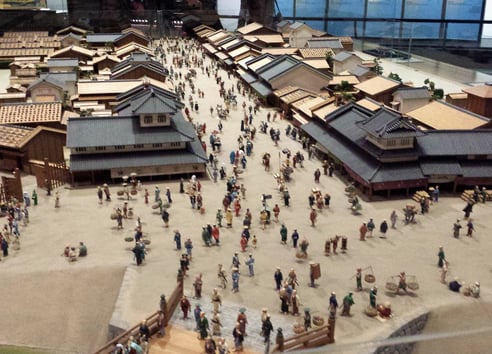

Edo-Tokyo Museum
The Edo-Tokyo Museum provides a historical look at Tokyo's transformation from a small fishing village to a bustling metropolis. The museum's architectural design symbolizes the evolution of the city, featuring life-sized replicas of historic buildings.
Exhibits include models, artifacts, and multimedia presentations that highlight key events and daily life during the Edo period. Visitors can participate in interactive experiences related to the city’s past.
This museum offers an engaging glimpse into Tokyo's rich history, appealing to both locals and tourists alike.
Shopping Destinations
Tokyo is a vibrant hub for shopping, offering diverse experiences that cater to different tastes and budgets. From luxury brands to traditional souvenirs, the city's shopping destinations provide unique opportunities for every visitor.


Ginza District
Ginza is Tokyo's luxury shopping district, renowned for its upscale boutiques and department stores. Visitors will find international brands alongside high-end Japanese labels.
Noteworthy locations include:
Mitsukoshi: An iconic department store with a range of luxury goods.
Ginza Six: A modern shopping complex featuring designer fashion and gourmet food options.
The architecture of Ginza adds to its allure, showcasing a mix of traditional and contemporary styles. Visitors can enjoy leisurely strolls along the picturesque streets, especially during weekends when the roads are closed to traffic.


Nakamise Shopping Street
Nakamise Shopping Street offers a glimpse into traditional Japanese culture. Located near Senso-ji Temple, this bustling pathway features numerous stalls selling snacks, souvenirs, and crafts.
Key highlights include:
Nakamise Snacks: Try popular treats like Ningyo-yaki (cake with sweet filling) and Senbei (rice crackers).
Traditional Crafts: Shops sell items such as folding fans and crafts made from kimono fabric.
The vibrant atmosphere attracts both tourists and locals, creating an engaging shopping experience. The historical significance of the area enhances the appeal, making it a must-visit for cultural enthusiasts.
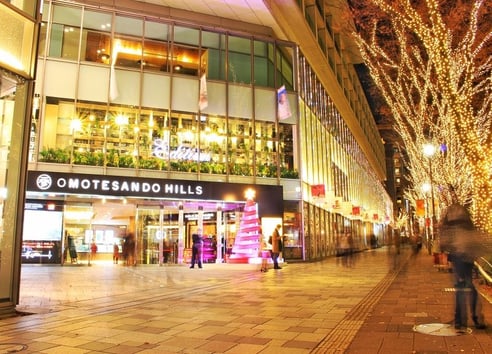

Omotesando
Omotesando is a trendy avenue celebrated for its stylish architecture and designer brand stores. Known for its tree-lined streets, it offers a unique blend of shopping and sightseeing.
Highlights include:
Omotesando Hills: A shopping complex that houses various luxury brands and cafes.
Stylish Flagship Stores: Notable brands like Prada and Dior have eye-catching designs that attract attention.
The area is also close to Harajuku, making it a popular destination for fashionistas. Visitors can enjoy exploring boutiques that feature both high fashion and local designers, making it an eclectic shopping destination.
Exceptional Eateries
Tokyo is renowned for its diverse dining options that cater to all tastes and budgets. Whether savoring a bowl of ramen, indulging in a Michelin-starred meal, or exploring local izakayas, visitors will find exceptional culinary experiences throughout the city.
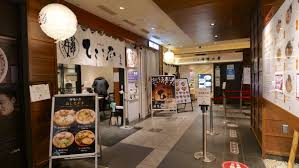

Ramen Streets
Tokyo boasts several ramen streets, each offering unique flavors and styles. One popular area is Shimokitazawa, known for its cozy atmosphere and vibrant ramen culture. Shops like Ramen Kario serve rich tonkotsu broth, while others focus on lighter shoyu bases.
Another notable destination is Shinjuku, featuring Omoide Yokocho, which is famous for its narrow alleys lined with small ramen shops. Ichiran and Ippudo are two well-known chains that provide a unique dining experience through individualized booths.
Visitors often queue for these delicious meals, underscoring ramen's popularity in the city.
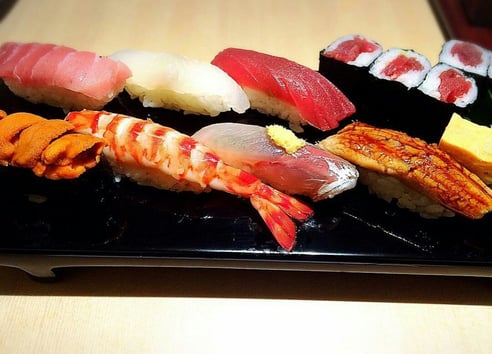

Michelin-starred Restaurants
Tokyo holds the record for the most Michelin-starred restaurants in the world, showcasing exceptional culinary craftsmanship. Sukiyabashi Jiro, famous from "Jiro Dreams of Sushi," is a must-visit for sushi enthusiasts. Reservations are essential due to its global fame.
Nihonryori RyuGin offers a seasonal kaiseki experience, emphasizing local ingredients. Other notable establishments like Kanda and Narisawa also focus on elevating traditional Japanese cuisine to fine dining levels.
Dining at these restaurants often makes for a memorable experience, combining exquisite flavors with refined ambiance.


Local Izakaya Alleys
Local izakaya alleys provide a different vibe, where casual dining meets authentic Japanese culture. Shinjuku’s Golden Gai is a famous cluster of tiny bars and izakayas, each with its own theme and offerings. Visitors can enjoy yakitori, sashimi, and other izakaya staples while mingling with locals.
In Ebisu, izakayas like Yakiya serve grilled dishes alongside a selection of sake. These intimate settings foster a warm atmosphere for socializing.
Sampling a variety of dishes and drinks is a highlight for many who venture into these lively alleys, capturing the essence of Tokyo's dining scene.
Explore
Discover destinations and activities around the globe.
Connect
info@bestglobaljourneys.com
© 2024. All rights reserved.